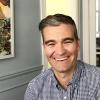Collections and Collecting
Please set your timezone at https://www.chstm.org/user
Consortium Respectful Behavior Policy
Participants at Consortium activities will treat each other with respect and consideration to create a collegial, inclusive, and professional environment that is free from any form of discrimination, harassment, or retaliation.
Participants will avoid any inappropriate actions or statements based on individual characteristics such as age, race, religion, ethnicity, sexual orientation, gender identity, gender expression, marital status, nationality, political affiliation, ability status, educational background, or any other characteristic protected by law. Disruptive or harassing behavior of any kind will not be tolerated. Harassment includes but is not limited to inappropriate or intimidating behavior and language, unwelcome jokes or comments, unwanted touching or attention, offensive images, photography without permission, and stalking.
Participants may send reports or concerns about violations of this policy to conduct@chstm.org.
Upcoming Meetings
There are no currently scheduled upcoming events.
Past Meetings
-
February 3, 2023
Nuala Caomhanach (New York University), "From Unique to Ubiquitous: The Conflict of Endemism in Conservation Law"
-
December 2, 2022
Garrett Dash Nelson (Leventhal Map and Education Center, Boston Public Library) “More or Less in Common: Environmental Justice in the Urban Landscape”
-
November 4, 2022
Tad Brown (University of Cambridge), “Peanut Traces: Collecting Arachis from the Telegraph Line in Brazil”
"In this paper, I trace the enrolment a specific peanut, Arachis nambyquarae Hoehne, into scientific networks as a method for understanding how Brazil became known as the geographic origin of peanuts. The species was named after an Amerindian group in Matto Grosso as well as the scientist who published its first description. Botanists would later reclassify this peanut as a variety within domesticated Arachis. The taxonomic reversal offers support for the argument that the study of plant diversity includes ideas about human diversity."
-
May 6, 2022
Brooke Penaloza Patzak, FWF Schrödinger Fellow/ Visiting Scholar, University of Pennsylvania: “Geographic Provinces as a Doctrine and Framework for Scientific Collection and Display, 1860-1900"
-
April 1, 2022
Katherine Arnold, London School of Economics: "Interpreting the Collector's Logic: The Pursuit of Desiderata in Early Nineteenth-Century Southern Africa"
-
March 4, 2022
Andrea Marshall, Centre for Media and Celebrity Studies: "Zines as Nonbinary Objects and Questions of Privilege"
-
February 4, 2022
Katherine McLeod, New York University: "What to do about rats in the archive," from her dissertation, "How to Display a Hoatzin: Ecology, Eugenics, and Zoology in the Early 20th Century United States"
-
December 3, 2021
Maura C. Flannery, Professor Emerita, St. John's University, NY/Research Associate, A.C. Moore Herbarium, University of South Carolina, Columbia: "Can Digital Collections Bridge the Gap between the Humanities and Science?"
-
November 5, 2021
Jesse Smith, Research Curator at the Science History Institute in Philadelphia, on “Instruments, Industries, and Invertebrates: Curating Water in the Public History of Science.”
Jesse will be giving us a brief virtual tour of the new “Downstream” exhibit at the Science History Institute and will talk through the process of its development. Then, we will turn to a broader discussion about the relationship between the history of science, public history, and museum exhibitions. Jesse has included two articles (attached) that offer some background about the collections and exhibitions at the Science History Institute.
-
October 1, 2021
Nushelle de Silva, Massachusetts Institute of Technology: "Conditioning Art, Air, and Action: Exhibition Conservation in the Art Museum"
Group Conveners
-

Reed Gochberg
Dr. Gochberg is Associate Curator and Manager of Exhibitions at the Concord Museum, and she teaches in the Museum Studies program at Harvard Extension School. She holds a PhD in English from Boston University and is the author of Useful Objects: Museums, Science, and Literature in Nineteenth-Century America (Oxford University Press, 2021).
-

Adrianna Link
Dr. Link is Head of Scholarly Programs at the American Philosophical Society. She received her PhD in History of Science from The Johns Hopkins University.
-

Jesse Smith
Jesse Smith is director of curatorial affairs at the Science History Institute, where he oversees exhibitions and other interpretive projects in the history of science. He is also associate editor of the journal History and Technology. Jesse earned his PhD in the history and sociology of science at the University of Pennsylvania.